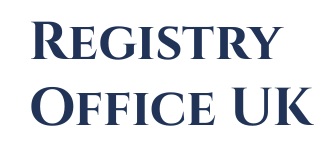Registry Office Information and Guidance for the UK and Ireland
Welcome to RegistryOffice.uk — your independent guide to birth, marriage, and death registrations in the United Kingdom.
We provide clear, easy-to-understand information to help you find your local register office, understand official procedures, and prepare the right documents before your appointment.
RegistryOffice.uk is not affiliated with the UK Government or the General Register Office (GRO) — we’re here to help you navigate the process confidently, with direct links to official GOV.UK resources where you can complete registrations and order certificates.
Funerals
Anniversaries
Divorce & Civil Partnership Dissolution
Genealogy & Family History Research
Immigration & Visa Requirements
Passport
Probate
Find your nearest Registry Office
What is a Registry Office?
What Is a Registry Office?
A registry office is the local authority office where births, deaths, marriages, and civil partnerships are officially registered in the United Kingdom. Each area has a local register office, run by the council, where you can book appointments to register life events, order certificates, or give notice of marriage.
What you can do at a registry office
- Register a birth and obtain an official birth certificate
- Register a death and receive the documents needed for legal matters
- Give notice of marriage or civil partnership
- Hold a civil wedding or civil partnership ceremony in a licensed room
Registry offices operate under the General Register Office (GRO), which is part of HM Passport Office within the Home Office. Local offices maintain accurate records and share them with the national database.
Need to register or order an official certificate? Use the official government directory:
Find a register office on GOV.UK.
Registry Office FAQs
What does a registry office do?
A registry office records births, deaths, marriages and civil partnerships, issues certificates, and hosts civil ceremonies.
Is a registry office the same as the GRO?
No. Local registry offices are run by councils. The General Register Office (GRO) is part of HM Passport Office and oversees civil registration nationally.
How do I find my nearest registry office?
Use the official directory on GOV.UK:
Find a register office.
What documents do I need to register a birth?
Typically the baby’s details, parent(s) ID and relevant information as requested by your local council. Requirements can vary—check your local office or GOV.UK for the latest list.
How do I give notice of marriage or civil partnership?
Book an appointment at your local register office and bring the required ID and evidence of address/immigration status if applicable. Timelines and documents vary by location—confirm locally.
Can I order certificates online?
Yes. You can usually order birth, death and marriage certificates online via the official services linked from GOV.UK.
Can I have my wedding at a registry office?
Yes. Many offices have licensed rooms for civil ceremonies. Availability, fees and capacity differ—contact your local office.
What are the fees and opening hours?
Fees and hours are set locally and can change. Always check your local register office or GOV.UK for current details before you travel.
Registry Offices in the UK and Ireland
In the United Kingdom, the registration of vital events is managed not only by the General Register Office (GRO) in England and Wales but also by separate agencies in Scotland and Northern Ireland.
While they operate independently, they all share the common goal of preserving the integrity and accuracy of these essential records.
If you need to obtain certificates or if you’re delving into your family history, these offices serve as an invaluable resource.
The General Register Office
General Register Office (GRO) – England and Wales: The GRO in England and Wales is responsible for the registration and maintenance of birth, marriage, and death records for individuals in these regions. Established in 1837, it operates under HM Passport Office. The GRO collects information from registrars and issues certified copies of vital records, enabling individuals to obtain legal proof of their birth, marriage, or death events.
National Records of Scotland (NRS) – Scotland: In Scotland, the National Records of Scotland (NRS) oversees the registration of births, marriages, and deaths. The NRS maintains its own system separate from the GRO. Established in 2011, it holds the responsibility of preserving Scotland’s historical records.
The NRS provides access to these records for genealogical research and offers online services to order birth, marriage, and death certificates specific to Scotland.
General Register Office for Northern Ireland (GRONI): In Northern Ireland, the General Register Office for Northern Ireland (GRONI) manages the registration of births, marriages, and deaths. It is the central authority responsible for maintaining and preserving vital records in Northern Ireland. Established in 1922, GRONI operates under the Department of Finance.
These separate registry offices in England and Wales, Scotland, and Northern Ireland each have their own systems and procedures for registering and maintaining vital event records.










